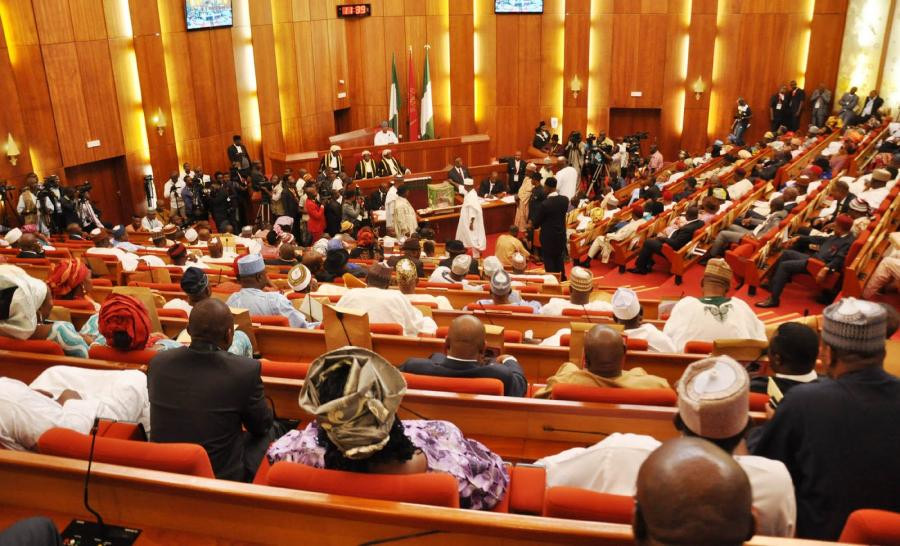Senate Passes Electoral Bill, Empowers NCC, NASS To Determine Use Of Electronic Transmission
 Senate has passed Electoral Amendment Bill sequel to a lengthy consideration of the report of Senate Committee on Independent National Electoral Commission (INEC).
Senate has passed Electoral Amendment Bill sequel to a lengthy consideration of the report of Senate Committee on Independent National Electoral Commission (INEC).
Kabiru Gaya, chairman of the committee, presented the report.
The bill seeks to repeal and re-enact the 2010 Electoral Act.
It also seeks to resolve issues regarding INEC’s introduction of modern technologies into the electoral process, particularly accreditation of voters, electronic voting and electronic transmission of results from polling units.
Efforts to get the bill signed into law by the Saraki-led 8th National Assembly were futile with President Muhammadu Buhari rejecting it three times.
At the end of voting, 28 Senators mostly from the PDP voted for the original amendment in the report while 52 Senators mostly from APC voted for the amendment.
The amended bill now empowers Nigerian Communications Commission (NCC) and National Assembly “to determine the use (or not) of electronic transmission of results of elections”.
Specifically, the initially proposed amendment was changed from “the Commission may transmit results of elections by electronic means where and when practicable” to:
“The commission may consider electronic transmission provided the national network coverage is adjudged to be adequate and secure by the Nigerian Communications Commission and approved by the National Assembly,” as proposed by Senate Deputy Whip, Sabi Abdullahi.
However, the adoption of this proposal was preceded by a division where all the lawmakers had to vote individually.
The Senate President, Adamu Lawan was unable to bring the chamber back to order, forcing the Senate to go into a closed-door session.
After the senate ended its closed-door session, Senate minority leader, Senator Enyinaya Abaribe called for a division challenging the Senate President’s ruling on clause 52(3) on electronic transmission.
He said he wants Nigerians to know who is voting for what.
Other contentious provisions in the bill are electronic voting, diaspora voting and limit of spending by political parties and candidates.
If the House of Representatives concurs and the bill is assented to by the president, INEC will lose power to solely determine whether election results are transmitted electronically.
The new bill also empowered INEC to review results declared by an electoral officer under duress.
The limit of election spending was, however, increased in the new bill.
The spending limit in Section 91 of the bill now allows presidential candidates to increase their cash haul from the current N1 billion to N5 billion while governorship candidates can rake in N1 billion from the hitherto N2 million.
For senatorial candidates, they can now legally raise N100 million from the previous N40 million, while candidates to the House of Representative can now accept N70 million from the current N30 million. And for State Assembly, candidates are now free to call up N30 million from the previous N10 million.
After the bill was passed, the Senate President, Ahmad Lawan, thanked colleagues for their devotion and dedication in the entire process.
He noted that if any difference is spotted in legislation passed by the House of Representatives, a conference committee will be constituted to harmonise the bill.
Lawan also hoped that the new legislation will improve future elections in Nigeria.
